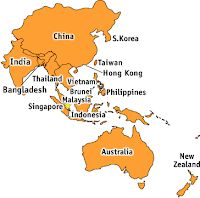Dangers of Dzud in Mongolia
For the second time this decade, extreme winter conditions on the Mongolian steppe caused extensive die-offs of sheep, goats, cattle, and camels, animals that traditional herding communities rely on for their survival.
This past January, temperatures on the steppe plunged to -58 degrees Fahrenheit—more than 10 degrees below average—and 700,000 animals perished as a result.
Severe winters that kill large numbers of livestock are common enough in Mongolia that there is a local term for the phenomenon: dzud. Now, the consensus among the nomads is that dzud has been occurring more frequently in recent years, and it seems to be getting worse. (Scientists have already shown that a warming Arctic is making U.S. winters worse.)
“We used to have four seasons, but now we only have three,” Batjargal told Nicholson. “Before, June, July, and August were warm and with rain. Different types of grass would grow, and the animals would get fat. Now, we have no rain and the wind dries up the grass. It is not what it used to be.”
This is a threat not only to livestock, but to the nomads’ way of life: Bereft of the animals they rely on for food and income, hundreds of thousands of herders have streamed into the country’s capital of Ulaanbaatar, hoping to send their children to school and find work.
Finding solutions is complicated by the fact that dzud is difficult to predict, since the conditions that give rise to the disaster are hard to pin down, says University of Maine climate researcher Bradfield Lyon.


Mongolia relies heavily on its livestock so extreme winter conditions that have lead to a lot of livestock death. This is why it is important to be environmentally conscious though out the world. Take care of our planet and extreme weather conditions might not be so extreme.
ReplyDeleteIt's all too easy to ignore the effects of climate when they occur in out-land areas also. Thanks for sharing team Asia.
ReplyDelete